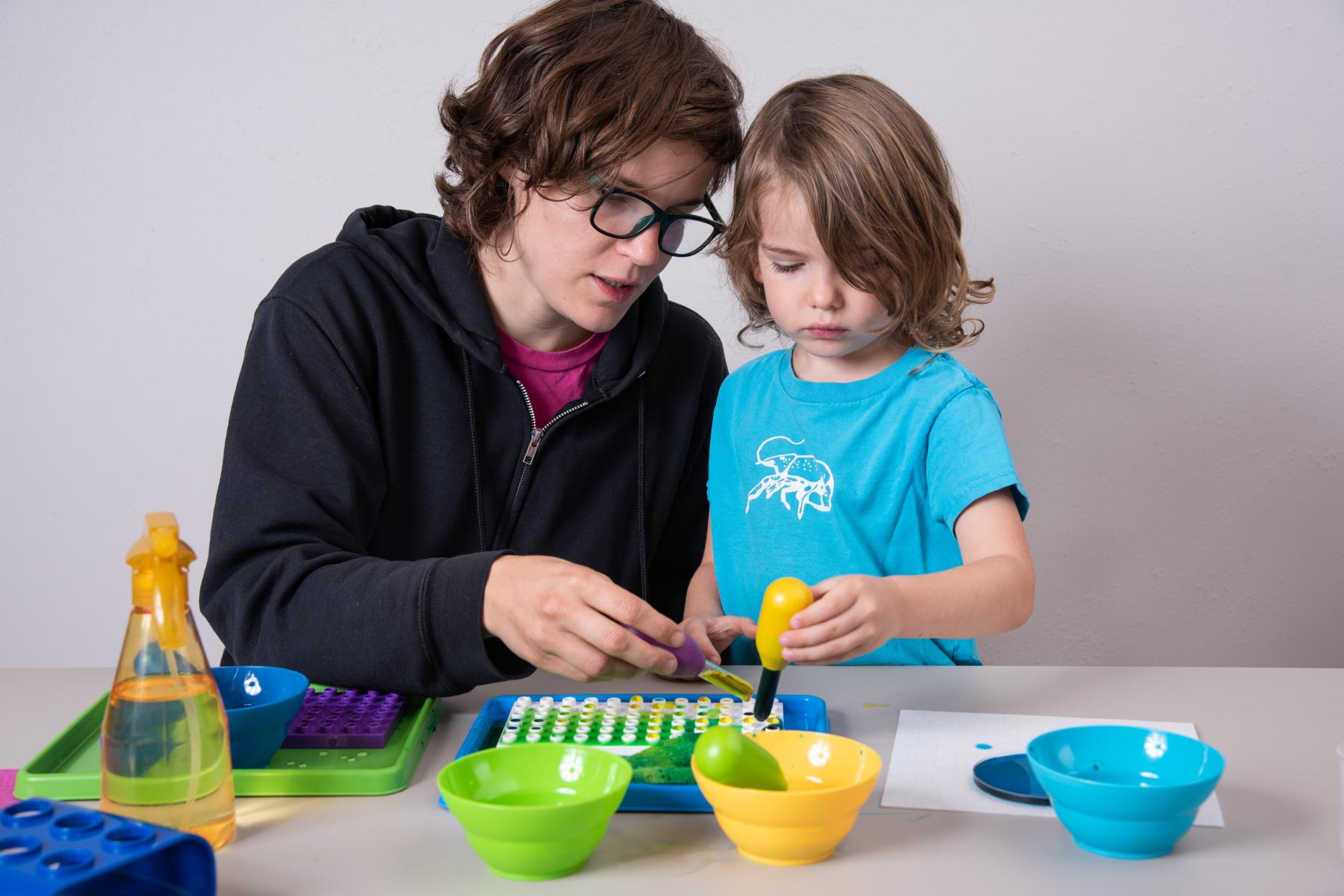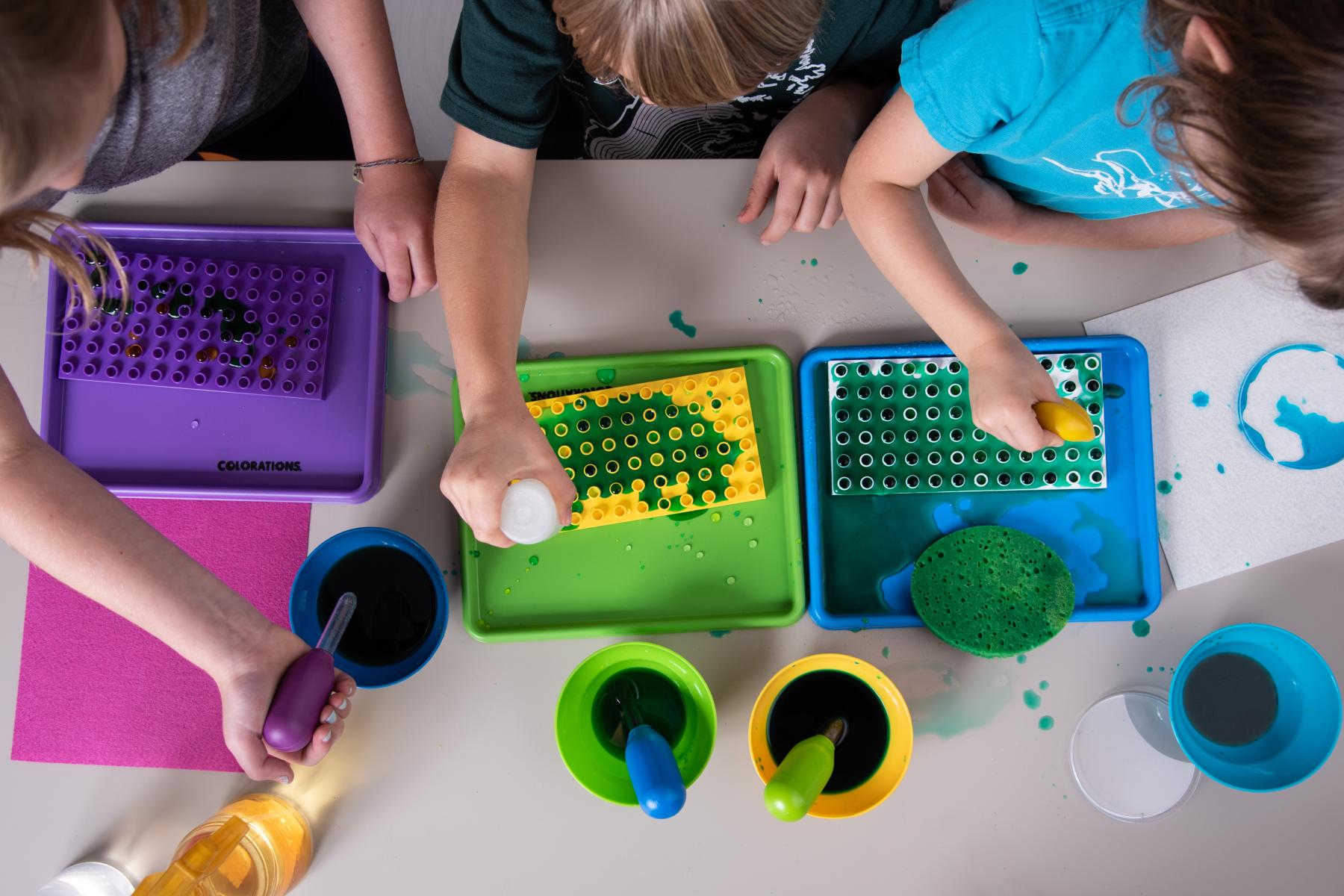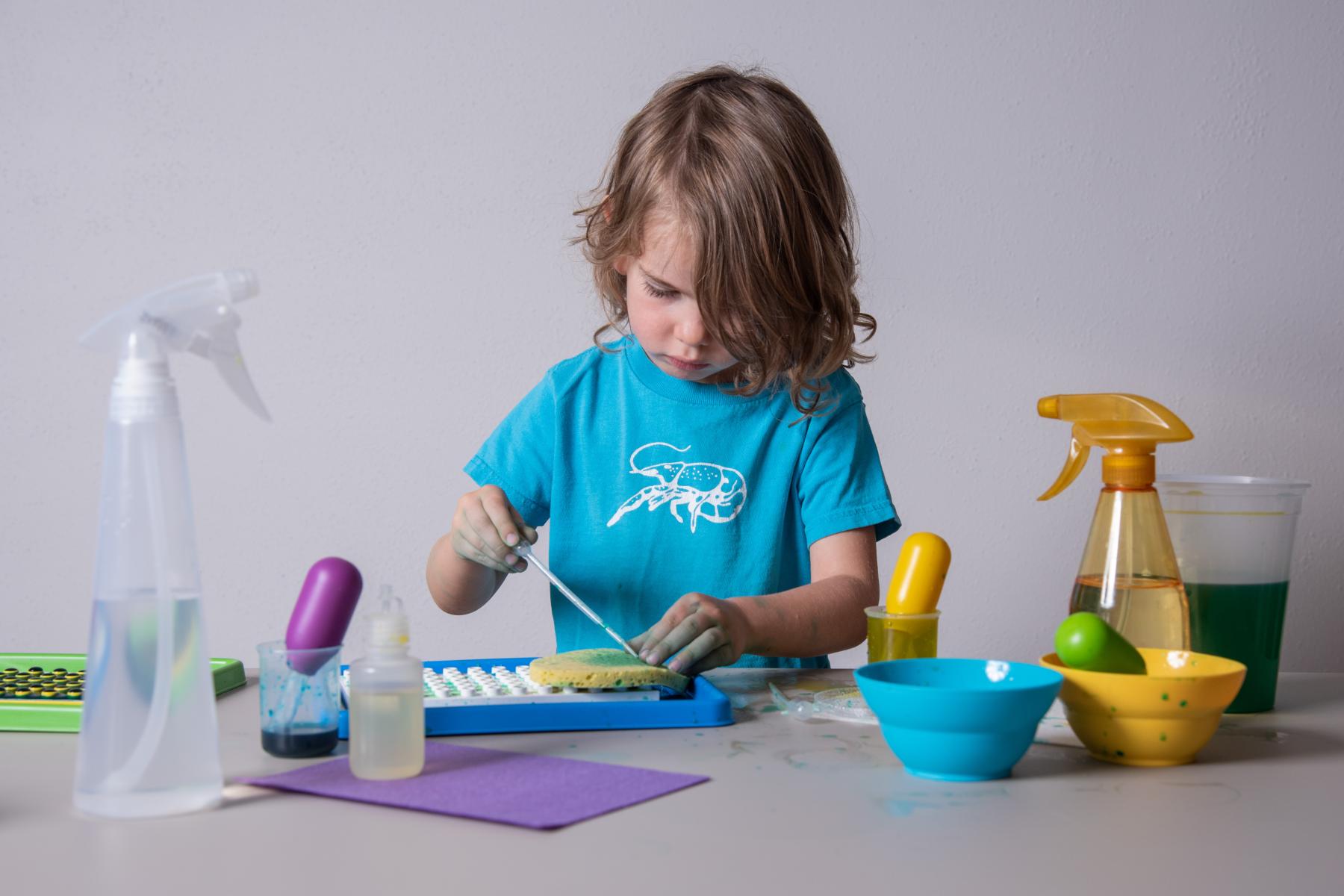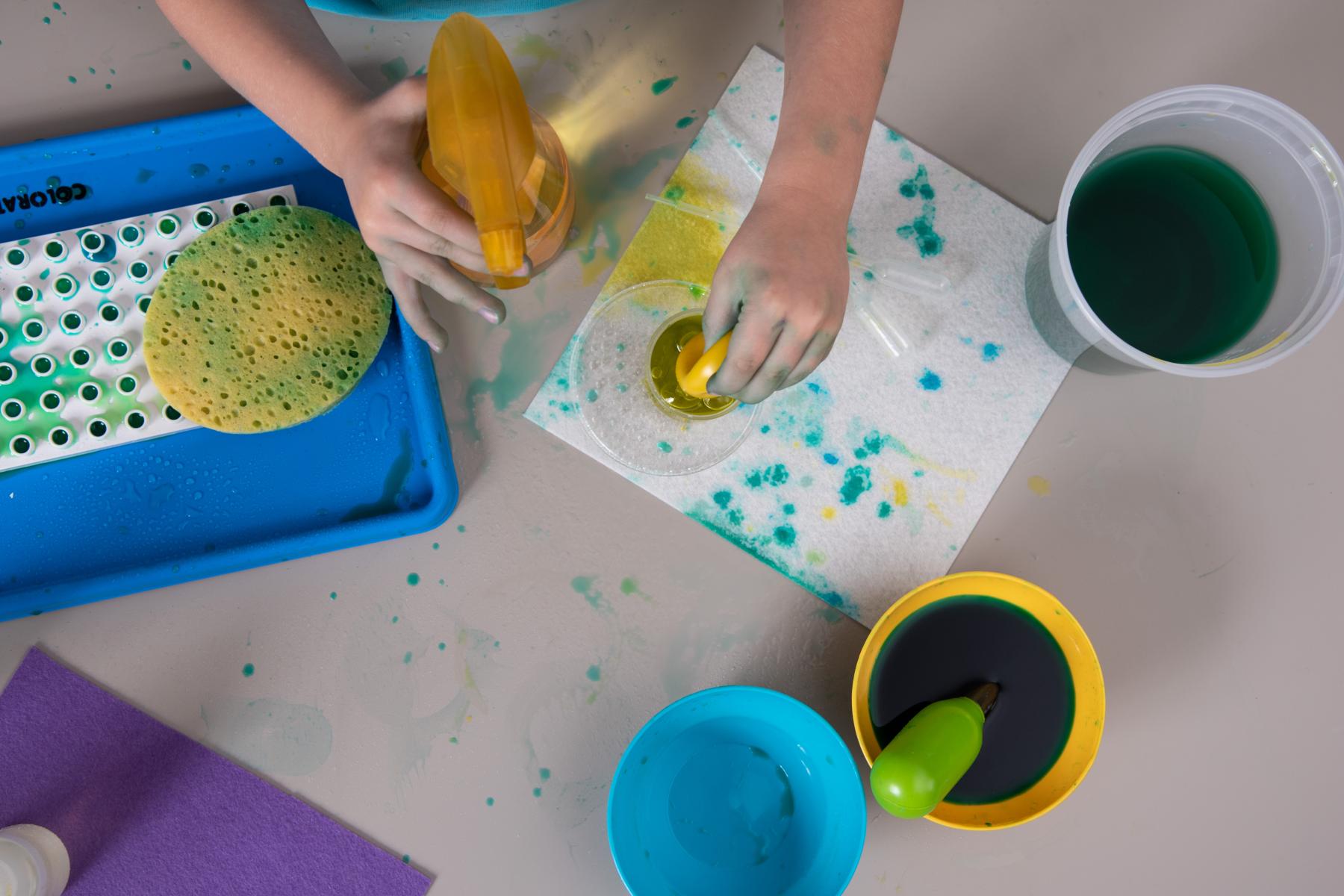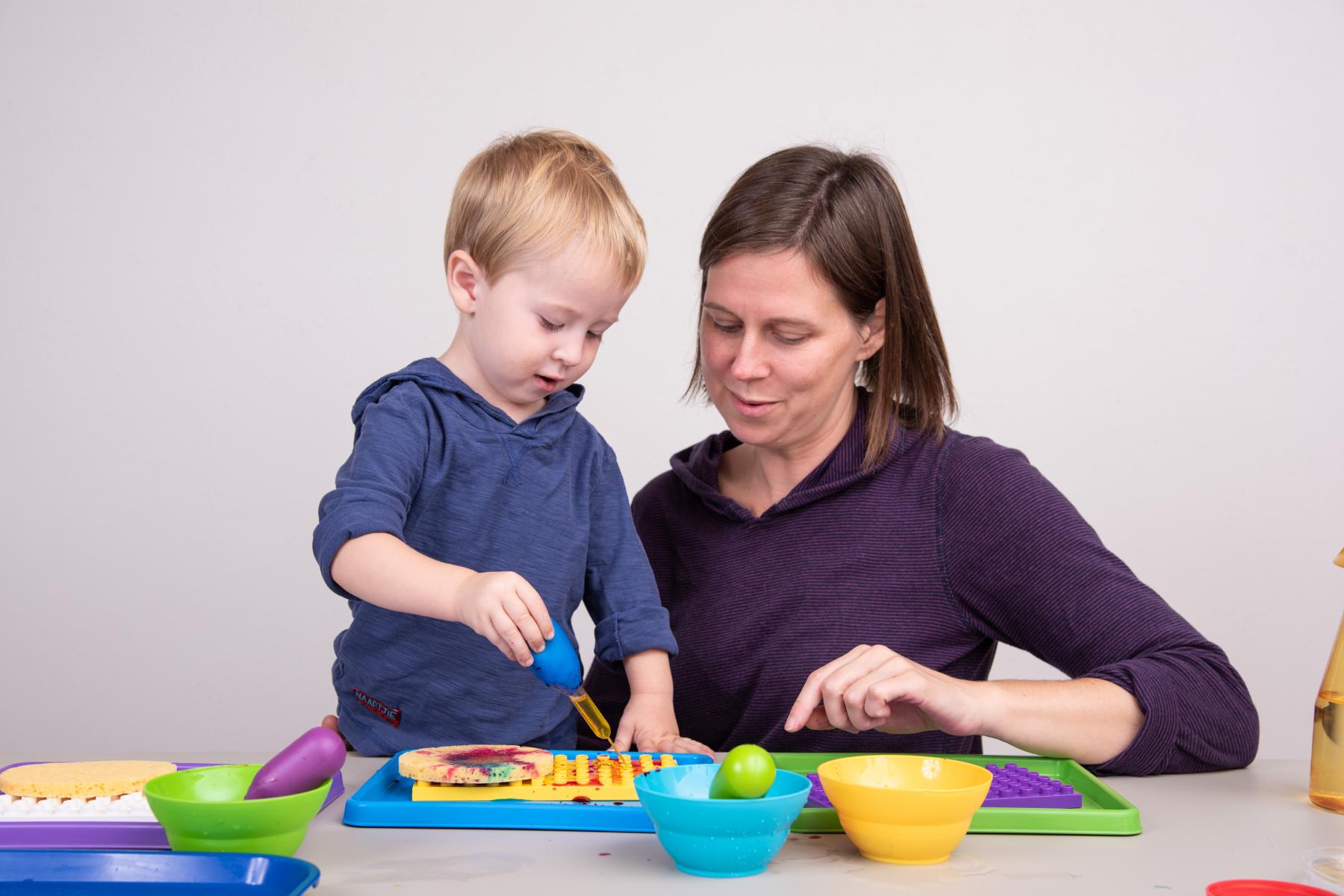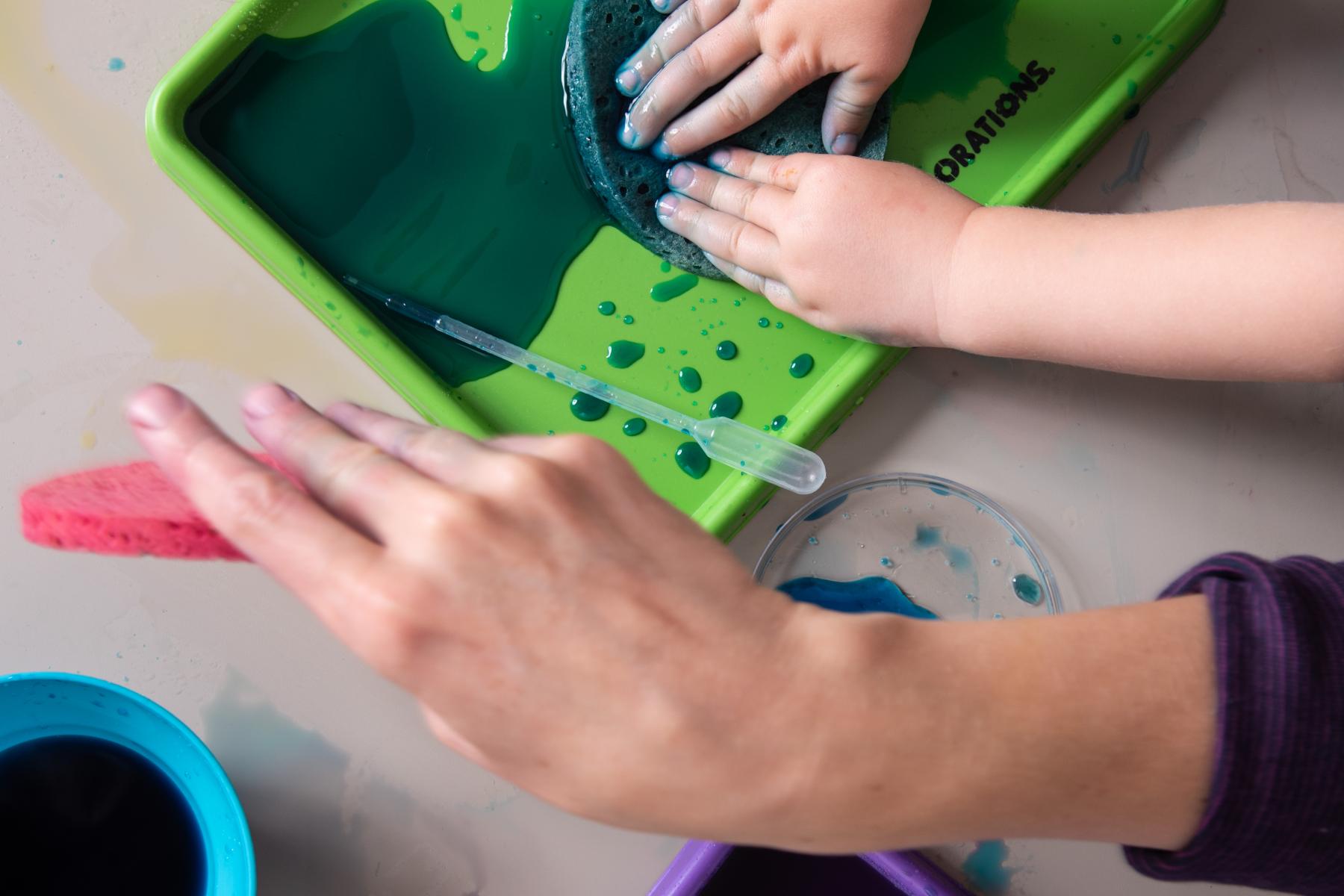DESCRIPTION
This activity gives caregivers and their children an opportunity to practice scientific ways of thinking that are developmentally appropriate for early learners. In this case, we’re doing so while getting a feel for some properties of water. But rather than emphasizing content, the activity highlights science process skills: in other words, what doing science can look and feel like at a young age.
DESCRIPTION
This activity gives caregivers and their children an opportunity to practice scientific ways of thinking that are developmentally appropriate for early learners. In this case, we’re doing so while getting a feel for some properties of water. But rather than emphasizing content, the activity highlights science process skills: in other words, what doing science can look and feel like at a young age.
TRAINING VIDEOS
OBJECTIVES
BIG IDEA
Simple play and exploration activities can help young children develop fundamental science process skills.
LEARNING GOALS
Learning objectives for caregivers
-
Exploring materials, using tools, and making observations are important skills for doing science.
-
Very young children (ages 0–4) use science process skills (like exploring, categorizing, measuring, observing, predicting, problem-solving, and using tools) to learn about the world around them.
-
Practicing science process skills early and often is important for children’s brain development.
-
DOWNLOAD FILES
- Early Explorations activity guide (PDF)
- Early Explorations facilitator guide (PDF)
- Early Explorations "Do Science Together" bookmark (small) (PDF)
- Early Explorations "Do Science Together" bookmark (PDF)
- Bugs Walking on Water infosheet (PDF)
- What Happens When It Rains infosheet (PDF)
- Early Explorations table sign (PDF)
- Early Explorations activity guide (Spanish) (PDF)
- Early Explorations "Do Science Together" bookmark (small Spanish) (PDF)
- Early Explorations "Do Science Together" bookmark (Spanish) (PDF)
- Bugs Walking on Water infosheet (Spanish) (PDF)
- What Happens When It Rains infosheet (Spanish) (PDF)
- Early Explorations table sign (Spanish) (PDF)
Credits
Sciencenter, Ithaca, NY
This material is based on work supported by NASA under cooperative agreement award numbers NNX16AC67A and 80NSSC18M0061. Any opinions, findings, and conclusions or recommendations expressed in this material are those of the author(s) and do not necessarily reflect the view of the National Aeronautics and Space Administration (NASA).
Creative Commons Attribution Non-Commercial Share Alike 3.0 United States (CC BY-NC-SA 3.0 US).
View more details

NISE Network products are developed through an iterative collaborative process that includes scientific review, peer review, and visitor evaluation in accordance with an inclusive audiences approach. Products are designed to be easily edited and adapted for different audiences under a Creative Commons Attribution Non-Commercial Share Alike license. To learn more, visit our Development Process page.

